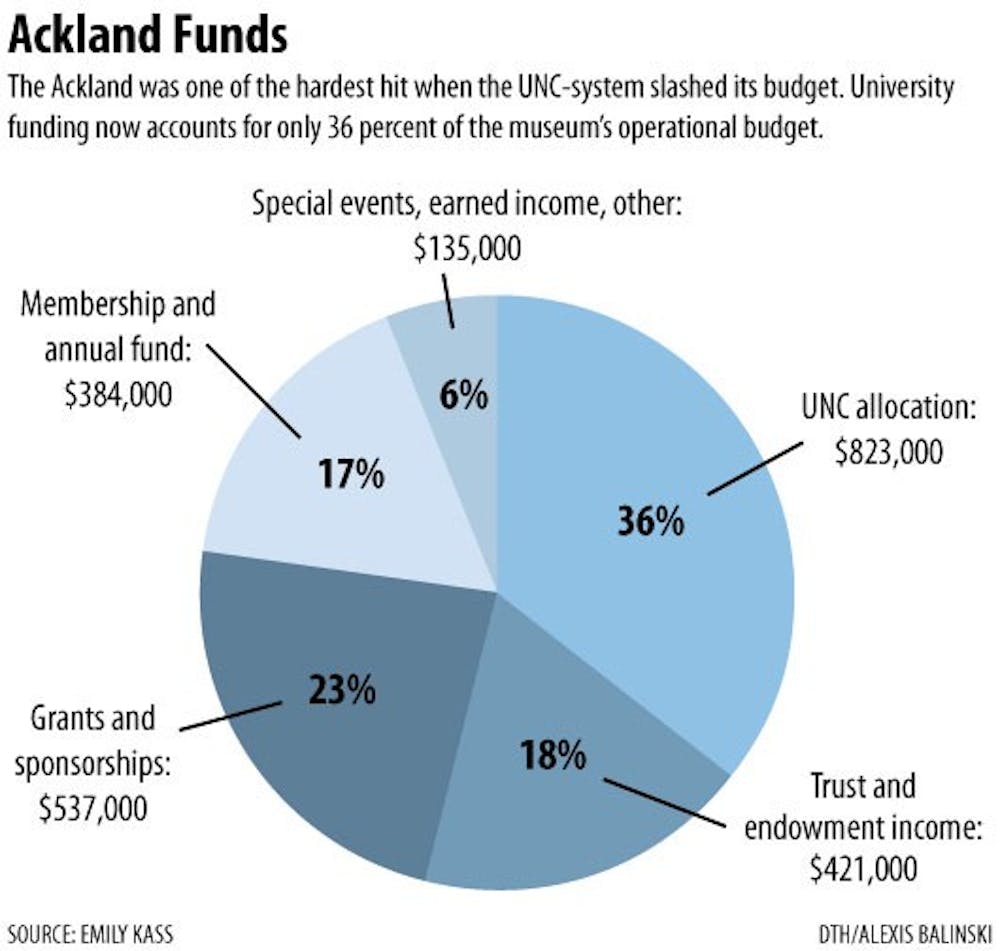He said museums and orchestras have been especially hard hit.
“A lot of arts organizations are trying to simply hang on, and they’re not even thinking about expanding or raising money,” Winslow said. “People are looking into supporting primarily what you call basic human services, and the arts is not perceived as one.”
Kass said she understands the need to prioritize emergency and social services, but the educational value a museum like the Ackland offers cannot be underplayed.
“We have, anticipating the cuts, eliminated some positions and cut back on some positions,” Kass said. “We had to move money around and scale back over time.”
For the museum, that means fewer curators and less administrative support, Kass said. Ackland also lost funds for development and information technology staff.
Membership and annual funds account for 17 percent of the Ackland’s budget. With dwindling support from the University, charitable giving is increasingly prominent in keeping the museum open.
“Roughly 40 percent of the income this year comes from philanthropy, not including the income from trusts and endowments, which themselves were charitable gifts,” Kass said in an email.
“All of the art in the collection came by way of philanthropy gifts of art or gifts of acquisition funds — no state funds were used to build the collection.”
But charitable giving, too, has changed with the economy.
Todd Cohen, editor and publisher of Philanthropy Journal, said nonprofits now have to adapt to the more demanding donor.
“People who do give are being much more selective about who they give to, and also what they expect in return,” Cohen said.
Donations haven’t only changed in volume.
To get the day's news and headlines in your inbox each morning, sign up for our email newsletters.
“What charities love, whether they’re big organizations like universities or soup kitchens, (is) what’s called unrestricted gifts,” Cohen said.
“That means, ‘Here’s the money, use it any way you want. Pay your bills, pay for the electricity, pay your staff, start a new program, hire a new person — whatever.’”
Cohen said that fundraising is now more about establishing personal relationships.
The Ackland’s upcoming Black & White Gala, its main fundraising event for the year, is catering to specific groups to do just that.
The largest donors — giving anything more than $500 — are being rewarded with a private catered reception at the museum.
Last November’s gala brought in $20,000 for the museum.
“The arts aren’t an isolated phenomenon,” Kass said. “It’s oftentimes a way for people to understand the world, to understand history – even to get by in school.
“Whether it’s creating a drawing or a painting or writing a song or singing, it’s part of this whole way of learning and looking at the world.”
Contact the Arts Editor at arts@dailytarheel.com.



